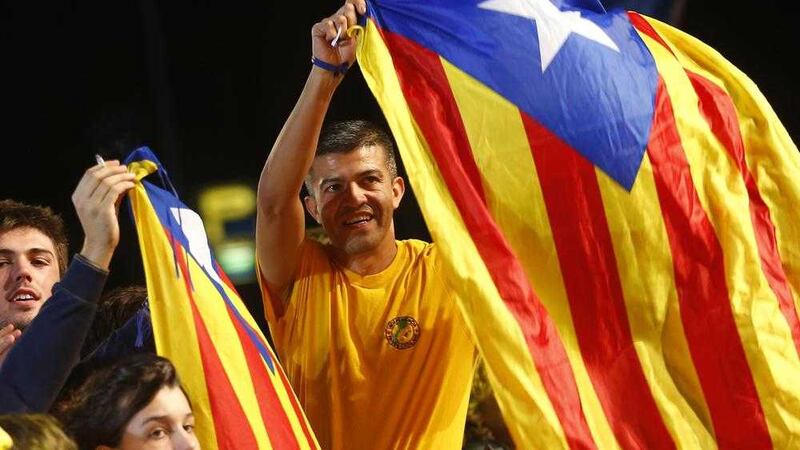The Iberian peninsula has always done politics differently. It is just over 40 years since the generals relinquished control of Spain on the death of Francisco Franco.
But even then the transition to a constitutional monarchy was not entirely smooth. In 1981 Antonio Tejero, a lieutenant colonel in the Guardia Civil, led a coup against the fledgling democracy – stopped only by the intervention of King Juan Carlos.
It was the mid-seventies too before the Portuguese saw a transition to democracy from a military junta.
Both countries are now key players in the European Union. And more than a generation on, one might have expected their democracies to have reached a degree of maturity. For the moment Portugal seems fine, though it is struggling to cope with the aftermath of the financial crisis.
Spain on the other hand appears to be a country on the verge of a nervous breakdown.
Prime Minister Mariano Rajoy, leader of the Christian Democratic People’s Party, is grappling with a crisis in Catalonia that threatens the very future of the state.
From the Spanish government’s perspective the issues are clear. Catalonia is an integral part of the nation, and the regional government has overstepped its authority by calling a vote on the future of the region. Sunday’s poll was illegal and had to be thwarted.
But things are rarely that simple.
There is something deeply disturbing about a government using strong-arm tactics to stop people expressing their views – however unpalatable they may be to others.
Rajoy has addressed Catalan leaders in patronising terms, dismissing their mandate to speak on behalf of their electorate. He has sent the Guardia Civil into regional government offices, arrested officials, seized documents and taken control of computers and the means of communications. The authorities have confiscated millions of ballot papers.
There is disturbing evidence too of Spanish disregard for freedom of expression and freedom of the Press. The government has closed down more than 140 websites supporting the independence movement. And, as my colleague Mariola Terrega at the University of Stirling reported in The Conversation last week, there has been a concerted campaign of intimidation against news organisations and journalists in Catalonia.
She wrote: “The Network of Local Television (La Xarxa de Comunicació Local) told its journalists not to ask politicians questions about the referendum until the day after it had taken place. Acting on similar fears, Spanish public mail company Correos stopped distributing the news magazine Omnium Cultural to its subscribers because it contained pro-referendum advertising.”
Unsurprisingly the force of the Spanish authorities has been met with the immovable force of protesters defending their right to free speech and the right to protest – a basic and fundamental human right Spain is sworn to uphold.
The scenes witnessed on Sunday – the deployment of riot police, the firing of rubber bullets, the injuries to protesters – are disturbingly redolent of Northern Ireland at the outset of the troubles.
Whether or not there is a majority in Catalonia for independence – and there is doubt over the level of support for the secessionists – history demonstrates the risks involved in suppressing freedom of speech.
In the way the British government in Northern Ireland became a recruiting sergeant for Irish republicanism; the Spanish government seems hell bent on creating conditions that will rupture the state, feed anti-Madrid sentiment, and open up the appalling vista that, thwarted politically, some in Catalonia may resort to violence to achieve their ends.
Europe cannot, and must not, turn away from its responsibilities to protect the freedoms of all the people of Spain to hold and express their political opinions, to partake in peaceful protest, and to exercise their right as citizens to hold their government to account.
As for the King of Spain, Felipe VI, what must he do? In 1981 his father stood up for the constitution and became a unifying force for the nation. Felipe has little room for manoeuvre. As a constitutional monarch he can act only on the advice of the government – albeit Rajoy’s is a minority one.
But he must use whatever moral authority he has to persuade his prime minister that a heavy-handed response to the Catalan crisis will only ignite a fuse that will be difficult if not impossible to put out.
In his classic book Homage to Catalonia, George Orwell writes of his involvement in the Spanish Civil War and the battle against fascism. “There are occasions when it pays better to fight and be beaten than not to fight at all,” he says. Rajoy would do well to ponder that observation.









